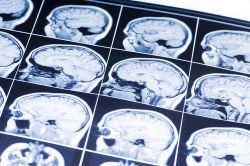Traumatic Brain Injuries: The Basics
September 25, 2019

Overview of Traumatic Brain Injuries
Have you ever been in a situation where someone fell, hit their head and become temporarily unconscious? In the past, these events weren’t taken very seriously. Now, medical professionals have confirmed that such seemingly small injuries are actually serious traumatic brain injuries. It’s recommended that anyone who loses consciousness temporarily seek out immediate medical attention to prevent further damage. Let’s get into the specifics about the symptoms, treatment and legal options associated with traumatic brain injuries.
Understanding the Symptoms of a Traumatic Brain Injury
Most people assume a traumatic brain injury would be obvious immediately after an accident, but this isn’t always the case. Traumatic brain injuries range in severity. A victim may not always lose consciousness following an injury. Here are some of the most commonly reported symptoms of a TBI:
- A temporary loss of consciousness
- No loss of consciousness, but feeling very confused or disoriented after hitting your head
- Insomnia
- Persistent headaches or dizziness
- Increased drowsiness or fatigue
- Slurred speech
- Sensitivity to sounds and lights
- Difficulty with memory
- Difficulty regulating moods
- Personality changes
- Dilation of the pupils
- Weakness and numbness in the extremities
- Increased agitation and aggressiveness
If you or a loved one experiences these symptoms following a head injury, then it’s important to seek out medical treatment.
TBI: Treatment Options
If you’re diagnosed with a TBI, then your treatment options will hinge on how severe your injuries are. Here’s a basic overview of what your treatment plan may look like:
- Mild TBIs: over-the-counter pain medication, rest, consistent monitoring and follow-up appointments
- Severe TBIs: prescription medications to prevent secondary damage, surgery, rehabilitation, consistent monitoring and several follow-up appointments
- TBIs are considered medical emergencies. Failure to immediately treat injuries could cause the patient’s condition to rapidly deteriorate.
Did Medical Negligence Contribute to Your TBI Injury?
While health care professionals are held to a high standard, they still make mistakes. At times, your doctor may not realize your symptoms indicate a TBI. A delayed diagnosis can be devastating and result in additional harm to a patient. If you believe medical negligence may have contributed to your injury, then don’t hesitate to reach out to an attorney as soon as possible.
Contact a Morristown Medical Malpractice Attorney for a Consultation About Your Traumatic Brain Injury Case in New Jersey
Were you or a loved one injured due to medical malpractice or a personal injury in New Jersey? Then you need to talk to an experienced lawyer as soon as possible for guidance on how to proceed. The attorneys at Hoyt & Hoyt are prepared to assist you with your legal claim. We represent victims of negligent surgeons, doctors, nurses, and pharmacists throughout New Jersey, including Boonton, Morris Township, Rockaway and New Brunswick. Call us today at 973 718-7744 or fill out our online contact form to schedule a consultation. Our main office is located at 67 East Park Place, 5th Floor, Morristown, NJ 07960 and we also have offices in New Brunswick.
The articles on this blog are for informative purposes only and are no substitute for legal advice or an attorney-client relationship. If you are seeking legal advice, please contact our law firm directly.





